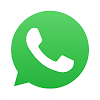Amazon is developing a new palm-sized device compatible with its acoustic assistant Alexa capable of recording and detecting signs of sleep apnea using radar.
The device is placed on the bedside table with millimeter wave radar to record users' sleep and breathing patterns, with the aim of detecting fine details in movements that may be caused by sleep apnea.
The idea of using radar to monitor sleep is not new, and another high-level company has tried to market the technology.
Nintendo announced in 2014 a non-wearable device that can track sleep over radio waves.
However, less than two years later, Nintendo said it was not sure the device could become a viable product, and it was never launched.
Last month, we also saw China's OnePlus announce the concept of a new smartphone that uses mmWave radar to monitor breathing.
The Amazon project appears to be being developed under the code name Brahms, referring to German composer Johannes Brahms, who is suspected of sleep apnea.
Amazon's internal team has been developing the device since last year, and in its current form the device resembles a hexagonal cushion connected to a metal wire base.
Besides sleep apnea, Amazon is reportedly planning to use machine learning and cloud technology to understand other sleep disorders.
This new device may be able to connect to other devices and send notifications through a standalone app.
Brahms represents Amazon's latest advances in health technology.
Last year, the company released Halo Fitness Tracking, a $99.99 wearable device that wipes the wearer's body and voice, designed to help you improve your health.
Amazon asserts that Halo's fitness tracker is not a medical device, and the company has launched a pharmacy service to deliver prescribed drugs.
It may be easier at this point to mention items that Amazon has not tried to add its voice assistant to, as Alexa has appeared over the past few years in everything from speakers to glasses, rings and even microwaves, and the sleep tracker may soon be added to that list.
Amazon seems to want to join the increasingly competitive market for sleep tracking devices, with Apple acquiring Beddit sleep tracking in 2017, while other device companies, such as Samsung, have made progress in this area.
The global market for smart sleep monitors is expected to grow by nearly 16 percent annually, reaching $43.5 billion by 2026.







0 Comments